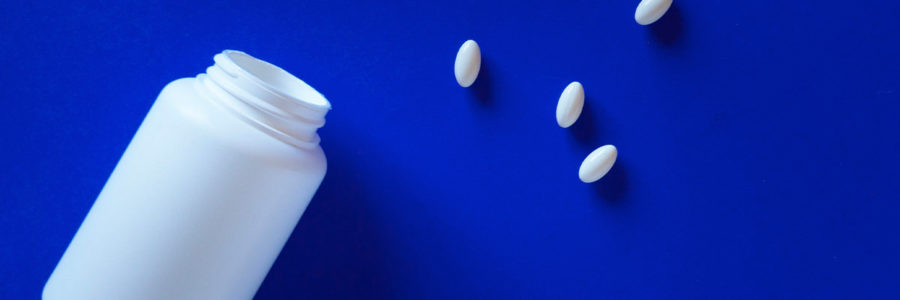What is Melatonin? Today’s article is all about the wonders of melatonin. Most people may associate melatonin with sleep, and indeed this hormone is a crucial part of falling and staying asleep! However, it has a much more significant role than just that, and today we delve into how supplementing melatonin (in high doses) could revolutionize your health.

This article has been medically reviewed by Dr. Charles Penick, MD
What is Melatonin?
Melatonin is a hormone produced in the gut and brain in response to darkness 1. Many people know the connection between melatonin and sleep, which is highly dependent on light exposure. When blue light is present, the production and release of melatonin are generally blocked1.
Many people don’t know the role of melatonin in various other processes in the body, including its ability to mitigate inflammation. A life free of chronic inflammation and full of vitality and cellular energy is deeply interconnected with melatonin.
Stress and Melatonin
Whenever stress is present, so is inflammation 2. Stress can be physical, mental, or chemically induced, and a chain of reactions in the body is generated that results in an inflammatory response in the body. This response is not “bad” but rather a critical challenge for the body to adapt to.
Stress adaptation is an evolutionary mechanism; it allows us to enter new environments and for the body to learn how to overcome and adapt to them. You can think of exercise, sauna, or cold exposure: over time, our body’s capacity to deal with the stress grows with time. Your muscles adapt to loads, and you can lift more weight in time!
Stress adaptation, however, is not suited to the daily chronic stressors of our life. The compounding effects of chronic stress from living in a modern world can and do eventually take a toll on your physical and mental health. Stress is not just your willful exposure to sauna and exercise but also the various traps of modern living, from mold and heavy metal exposure, to working a job you hate, to being in social and relational situations that stress you out.
The accumulation of all this stress and cellular inflammation is a major proponent of modern diseases 2. All conditions have an inflammatory component, so addressing inflammation is a non-negotiable for anyone wanting to live a vibrantly healthy life. Melatonin has a profound role in mitigating inflammation, promoting antiaging, and supporting gut and immune health when consumed in high doses 3- 4.
200- 450 Milligrams of Melatonin
No, it was not a typo! Many people associate melatonin supplementation with five to nine milligrams, perhaps even as low as one or two. However, superphysiological dosing of melatonin is the kind of supplementation associated with profound anti-inflammatory health benefits 3.
Is Mega Dosing Melatonin Safe?
Studies have administered extremely high doses, ranging upwards of 150,000 milligrams of melatonin for the equivalent of human size in animals, finding absolutely no toxicity 5.
Believe it or not, these macro doses of melatonin can be administered during the day or night. Nighttime dosing will make sense to most people since melatonin is a sleep hormone; however, macro day dosing is equally used in clinical practice because when blue light penetrates your eyes, melatonin does not activate your sleep cycle during the day 6.
How to Take High Doses of Melatonin
There are two ways to take macro dose melatonin: oral or using a suppository. The other variable is taking it during the day or at night.
Oral vs. Suppository
Taken orally, melatonin is absorbed very quickly. Within about 45 minutes, the levels peak and start to diminish 7. This does not give your cells much time to absorb the benefits of melatonin. With a suppository, on the other hand, the slow release lasts for five to seven hours.
The faster onset of melatonin when it is taken orally has its benefits, depending on why you’re supplementing melatonin in the first place. You’re ready to go to bed within 20-30 minutes of taking it orally. Ideally, combining both methods is best.
The benefits of melatonin suppositories are more targeted to the gut since the supplement bypasses your stomach. As a result, melatonin suppositories are more bioavailable and cause what is known as a ‘swarming’ effect that profoundly benefits your gut microbiome 8.
The gut produces 400x more melatonin than the brain. Your gut microbiome is operating on a circadian rhythm just like you are, more active during the day thanks to the presence of many different hormones than during the night 8. The gut is more parasympathetic, in the ‘relax and repair’ mode at night. This rest and digest mode in the gut is known as swarming, which is primarily activated by melatonin.
Saturating the gut with melatonin prompts this swarming effect that encourages it to regenerate and repair, which is crucial if we are trying to heal or help our gut microbiome thrive.
Mega Dosing Melatonin During the Day vs. Night
For a small number of people, melatonin can act as a stimulant. Although there are few studies on the subject, experts speculate that this may be because of melatonin’s powerful detoxifying capacity 3. Sleep can be tough if your body releases toxic substances like metals.
Knowing if high-dose melatonin supplementation is more suited for your use during the day or night requires a bio-individual trial and error. You can try taking it on the weekend when you don’t have any significant commitments and see if you can use it well during the day or night.
Many who get too stimulated using large melatonin doses at night have successfully transitioned to night use after a week or two of daytime use. So if you’re one of the people who get stimulated by melatonin at night, this could be a good option for you to benefit from the anti-inflammatory and sedative properties of melatonin.
Blue Light and Melatonin
Understanding that exposure to blue light blocks the release and use of melatonin is vital information 6. This is the principle by which many healthcare providers urge their clients not to get blue light exposure right before bed. If you’re staring into your phone or TV screen until bedtime, you are effectively tricking your brain into thinking it’s still daytime. As a result, it does not correctly release melatonin resulting in the cascading sleep-inducing effects of melatonin when no blue light is present 6.
Blue light-blocking glasses are an effective way to mitigate this problem but should not be used to justify watching movies for hours and hours before bed every night. Biohacks are great tools to use as buffers when the occasional movie night happens, but it is best to avoid screens within the few hours before you go to sleep as a general rule of thumb.
Melatonin Supplementation and Downregulation
For most hormones, the use of supplementation will result in the downregulation of your body’s natural production. With melatonin, however, this is not the case. Studies show that an individual can supplement with even extremely high doses of melatonin, and the supplementation will not interfere with your body’s endogenous production 3.
Cycling On and Off Melatonin
Like all supplements, you will benefit from cycling melatonin on and off. Since supplementing with melatonin will not downregulate your endogenous production, you can cycle it weekly (with three days on, three days off, for example) or monthly (with two to three months on and the same amount off).
Summary
Although most people associate melatonin with sleep, melatonin has many more benefits than deeper sleep. Melatonin profoundly impacts inflammation when used in very high doses. High doses can range from 200 to 450 mg and can be taken during the daytime or before bed. High doses can be taken orally or as a suppository, with higher gut regenerating properties being present when used as a suppository.
Medical Disclaimer: The information on this website is not intended to replace a one-on-one relationship with a qualified health care professional and is not intended as medical advice. It is intended as a sharing of knowledge and information. This article has been medically reviewed by Dr. Charles Penick, MD, for the accuracy of the information provided, but we encourage you to make your own healthcare decisions based upon your research and in partnership with a qualified healthcare professional.
References
- “Melatonin: What You Need to Know.” National Center for Complementary and Integrative Health, U.S. Department of Health and Human Services, https://www.nccih.nih.gov/health/melatonin-what-you-need-to-know.
- Liu, Yun-Zi et al. “Inflammation: The Common Pathway of Stress-Related Diseases.” Frontiers in human neuroscience vol. 11 316. 20 Jun. 2017, doi:10.3389/fnhum.2017.00316
- John. Melatonin: Miracle Molecule.
- Srinivasan, V., Maestroni, G., Cardinali, D. et al. Melatonin, immune function and aging. Immun Ageing2, 17 (2005). https://doi.org/10.1186/1742-4933-2-17
- Guardiola-Lemaître, B. “Toxicology of melatonin.” Journal of biological rhythms vol. 12,6 (1997): 697-706. doi:10.1177/074873049701200627
- Tähkämö, Leena et al. “Systematic review of light exposure impact on human circadian rhythm.” Chronobiology international vol. 36,2 (2019): 151-170. doi:10.1080/07420528.2018.1527773
- Choudhary, Sandeep et al. “PK-PD based optimal dose and time for orally administered supra-pharmacological dose of melatonin to prevent radiation-induced mortality in mice.” Life sciences vol. 219 (2019): 31-39. doi:10.1016/j.lfs.2019.01.007
- Paulose, Jiffin K et al. “Human Gut Bacteria Are Sensitive to Melatonin and Express Endogenous Circadian Rhythmicity.” PloS one vol. 11,1 e0146643. 11 Jan. 2016, doi:10.1371/journal.pone.0146643


